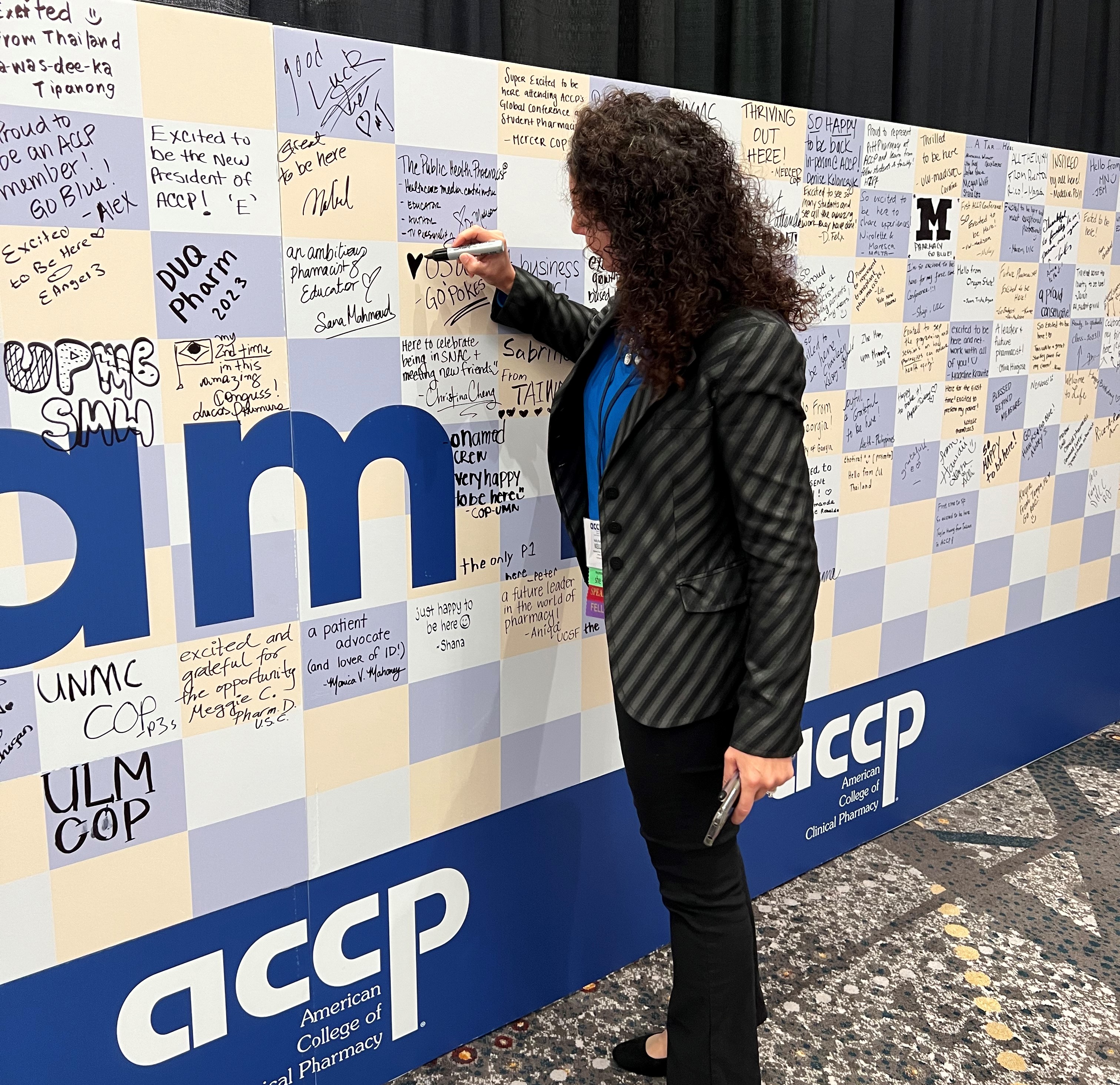A commitment to diversity and inclusion is an ACCP core value. Since 2020, ACCP has deliberately and strategically focused on emphasizing this commitment, including implementation of a Strategic Diversity, Equity, and Inclusion (DEI) Plan. Strategic direction 1 within this plan includes 11 objectives focused on creating a culture of inclusion (see Table 1 in the text that follows). Through implementation of the ACCP Task Force on Diversity, Equity, Inclusion, and Accessibility (DEIA) guidance and many member-driven and leadership-supported efforts, much progress has been made in achieving these objectives.
Through the recommendations of the 2022 ACCP Task Force on DEIA and a special vote by the membership, in October 2022, the ACCP Bylaws were revised to better reflect the organization’s commitment to creating an inclusive culture. Modifications were made to membership profiles to allow individuals the option of providing demographics, including race, ethnicity, gender identify, sexual orientation, and preferred pronouns. These are important steps in creating an inclusive culture. Tracking member demographics over time will allow ACCP to monitor progress toward diversity and equity goals as well.
 Global Conference attendee signs I am Wall.
Global Conference attendee signs I am Wall.Intentional efforts were made to ensure the 2022 Global Conference was an inclusive and welcoming event for all attendees. Near the registration desk, an expansive “I am” wall was erected – inviting members to identify in whichever way(s) they wished. Documented identities included “clinical pharmacist,” “international clinical pharmacist,” “Bostonian,” “spreadsheet enthusiast,” “future pharmacist,” “leader,” and “first-time attendee.” Others penned excitement for being together at a live, in-person meeting and for the networking and professional development opportunities offered. Also introduced at the Global Conference were new name badge ribbons including preferred pronouns. Finally, ACCP staff and leaders – including Board of Regents members and PRN officers – were encouraged to monitor for newcomers and those without an existing network and to invite these individuals into conversations, programs, and networking circles.
To reduce the risk of bias and dismantle any existing barriers to leadership opportunities within the College, the organization’s efforts toward creating an inclusive culture have also extended to include revised policies and procedures for the Nominations Committee and PRNs. The 2023 ACCP Task Force on DEIA is working on recommendations for revisions to the Awards Committee policies and procedures and developing a DEIA toolkit as well as exploring opportunities for mentoring and belonging.
In November 2022, with the goal of decreasing barriers to inclusion, ACCP collaborated with the Student National Pharmaceutical Association (SNPhA) to offer a completely free, virtual residency and fellowship showcase. In addition, “Emerge First” programming, designed to provide underrepresented student pharmacists with early guidance on how to be competitive for postgraduate training programs, has been offered at three campuses.
It is important to recognize and celebrate ACCP’s progress as the College remains engaged in its long-term commitment to this work. These early achievements focused on inclusion are an essential first step; however, they may not be as visibly apparent as the College’s longer-term goals on increasing diversity in leadership. It is a delicate balance of urgency and patience as ACCP approaches this work with the excellence it is known for. ACCP is taking a systematic, evidence-based approach to DEI plan development and implementation. Its early successes in achieving inclusion-focused objectives combined with the data derived from the baseline and interim DEI assessments support optimism that the College will in time successfully enhance diversity and representation across the organization.
It is essential that every member of ACCP do their part in supporting a culture of inclusion and enhancing the diversity of leadership. Most members can recall who invited them to join and become engaged with ACCP – continuing to invite new members to experience and feel welcome at ACCP events and within PRNs is a vital part of the College’s cultural foundation.
Table 1. Strategic Direction 1 of the ACCP Diversity, Equity, and Inclusion Plan
|
ENHANCE INCLUSION
|
|
Strategic Direction 1: Create an Inclusive Culture within ACCP
|
|
Member Engagement
|
1.1 By 2021, impanel a DEI task force.
|
|
1.2 By 2021, charge the 2022 Member Relations Committee with providing guidance on how ACCP can implement meaningful outreach to pharmacists and student pharmacists who identify as Black or Latinx.
|
|
1.3 By 2021, charge the 2022 Task Force on DEI with providing recommendations for revision to the PRN handbook to provide guidance to PRN leadership on policies and procedures that promote inclusion (e.g., nominations, elections, speaker selection).
|
|
Communication
|
1.4 By 2021, continue to highlight DEI efforts in the ACCP Report, on ACCP webpages, and through social media and other communications.
|
|
1.5 By 2022, share key assessment data and action plans with members.
|
|
1.6 By 2021, increase formal communication between PRNs and Board of Regents (BOR) PRN liaisons.
|
|
Leadership and Membership Development
|
1.7 By 2021, provide professional development in DEI principles and inclusive leadership to BOR and staff.
|
|
1.8 By 2021, include DEI principles and inclusive leadership as required components of the orientation for all new BOR members.
|
|
1.9 By 2021, offer ongoing professional development in inclusive leadership to ACCP members (through Annual Meeting programming and enduring/on-demand programs).
|
|
Operational Policies and Procedures
|
1.10 By 2022, provide clear guidance to the Programming Committee, Education Committee, and PRNs on incorporating DEI principles into speaker selection and program evaluation.
|
|
1.11 By 2022, apply ACCP values, principles, and DEI filters as decisions about policies, processes, and directions are made.
|